Are you considering homeschooling your child but unsure about how to structure a curriculum that meets their needs? Crafting the perfect homeschooling curriculum proposal can feel overwhelming, but it's easier than you think! In this article, we'll break down the essential components to include, ensuring your proposal stands out and aligns with your educational goals. So, let's dive in and discover how to create an engaging and effective homeschooling curriculum proposal together!

Educational Objectives and Goals
Homeschooling curriculum proposals emphasize the importance of educational objectives and goals tailored to each student's needs. The first objective focuses on fostering critical thinking skills through problem-solving activities tailored for various subjects, including mathematics and science. Competency in core subjects like language arts, focusing on reading comprehension and writing skills, ensures students are college-ready. Social studies curriculum aims to enrich understanding of history and geography, incorporating events like the American Revolution and important figures such as Martin Luther King Jr. Goals also include enhancing creativity through art and music classes, leading to a well-rounded education that accommodates diverse learning styles. The integration of technology, addressing digital literacy and research skills, is crucial for preparing students for a tech-driven world. Finally, emphasis on character development through community service projects fosters empathy and social responsibility.
Curriculum Structure and Content
A well-designed homeschooling curriculum should encompass various educational domains to foster holistic development in students. The proposed structure includes key subjects such as Mathematics, Science, Language Arts, and Social Studies, with each subject comprising distinct content areas. For Mathematics, critical topics include algebra, geometry, and statistics, ensuring a comprehensive understanding of numerical applications and problem-solving skills. In Science, the curriculum explores life sciences, physical sciences, and earth sciences, emphasizing inquiry-based learning through hands-on experiments and real-world applications. Language Arts encompasses reading comprehension, writing skills, and literary analysis, fostering effective communication and critical thinking. Social Studies focuses on history, geography, and civics, encouraging students to understand their role in society and global awareness. Additionally, interdisciplinary projects will integrate arts and technology, promoting creativity and practical skills, aligned with educational standards outlined by the National Education Association (NEA) and state guidelines. Regular assessments and progress tracking will be implemented to ensure academic growth and adherence to educational objectives.
Teaching Methods and Resources
Homeschooling families often explore various teaching methods to tailor education to individual learning styles. Traditional methods include textbooks and worksheets, while hands-on approaches involve projects and experiments. Online resources, such as Khan Academy or Coursera, provide interactive materials for subjects like math and science. Montessori techniques emphasize self-directed learning, fostering independence in students. Incorporating multimedia resources (videos, podcasts) enriches lessons for visual and auditory learners. Collaboration with local homeschooling co-ops or online forums enhances community support and resource sharing, making the journey of education more engaging and effective for students.
Assessment and Evaluation Plan
A comprehensive assessment and evaluation plan for homeschooling should incorporate diverse methodologies to gauge the students' understanding and mastery of the curriculum. Regular formative assessments, such as quizzes and open-ended questions, can be conducted weekly (e.g., every Friday) to measure retention of concepts in subjects like Mathematics or Language Arts. Summative assessments, including projects and portfolios, should be scheduled at the end of each term (approximately every 12 weeks) to evaluate cumulative knowledge in disciplines like Science and History. Standardized testing may also be incorporated annually, benchmarking progress against national standards set by organizations like the Educational Testing Service (ETS). Additionally, self-assessments encourage students to reflect on their learning journey, while peer evaluations foster collaboration and constructive feedback among learners. A mix of qualitative and quantitative data collection ensures a holistic view of student performance and areas for improvement, guiding future instructional decisions.
Compliance with State Regulations
Homeschooling curricula must adhere to state regulations, which may vary significantly among states like California or Texas. Each jurisdiction typically requires that educational programs include specific subjects, such as mathematics, science, language arts, and social studies, with defined learning outcomes. Documentation and assessment methods are critical for demonstrating compliance, often necessitating portfolios, standardized tests, or progress evaluations. Furthermore, some states mandate annual submission of educational plans or progress reports to local education authorities, ensuring alignment with state educational standards and expectations. Understanding these requirements is essential for developing an effective and compliant homeschooling curriculum.
Letter Template For Homeschooling Curriculum Proposal Samples
Letter template of homeschooling curriculum proposal for community review
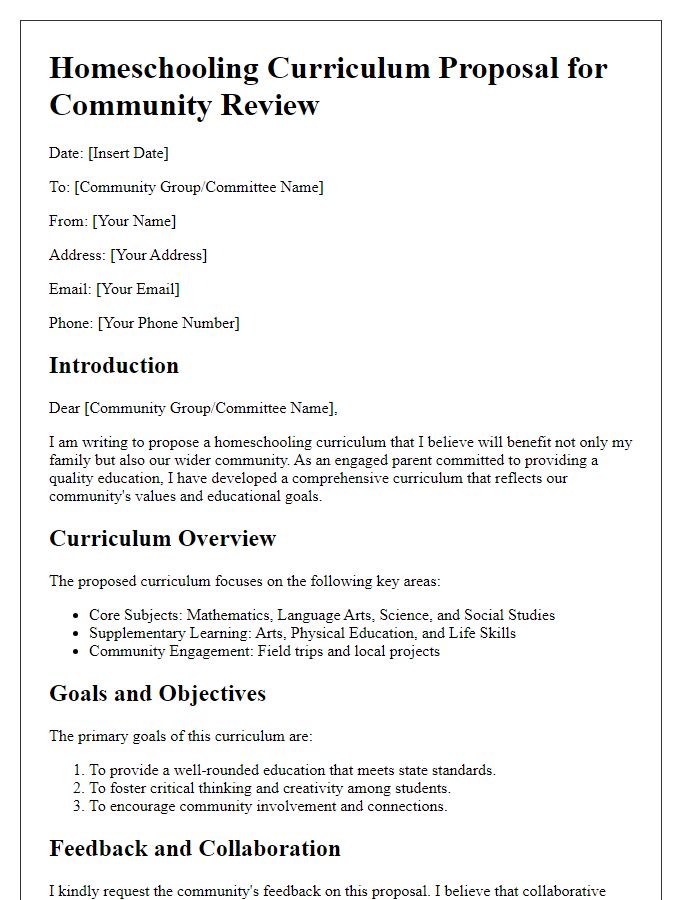
Letter template of homeschooling curriculum proposal for a portfolio assessment
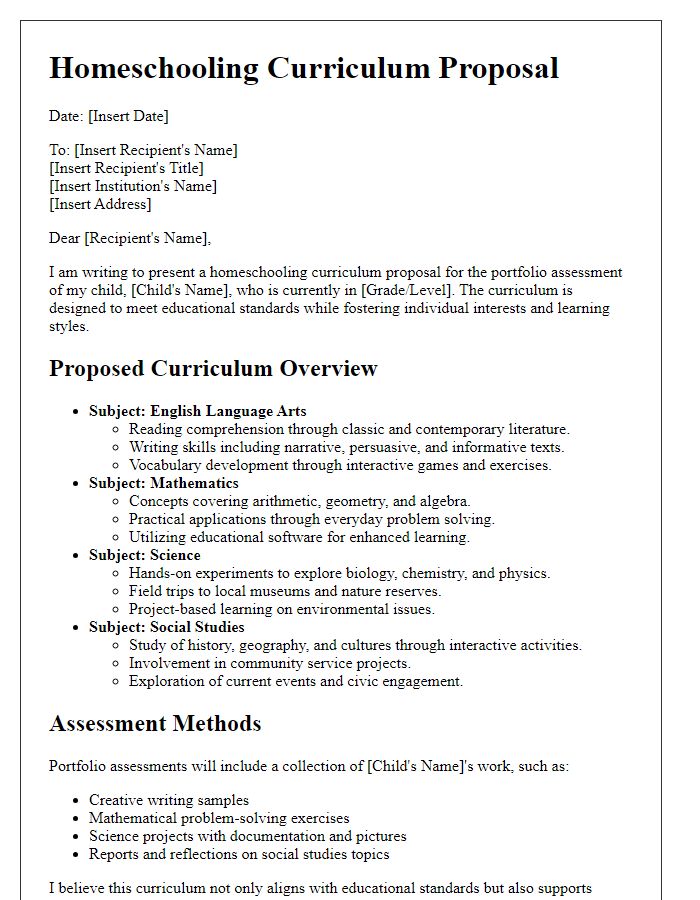
Letter template of homeschooling curriculum proposal for financial aid request
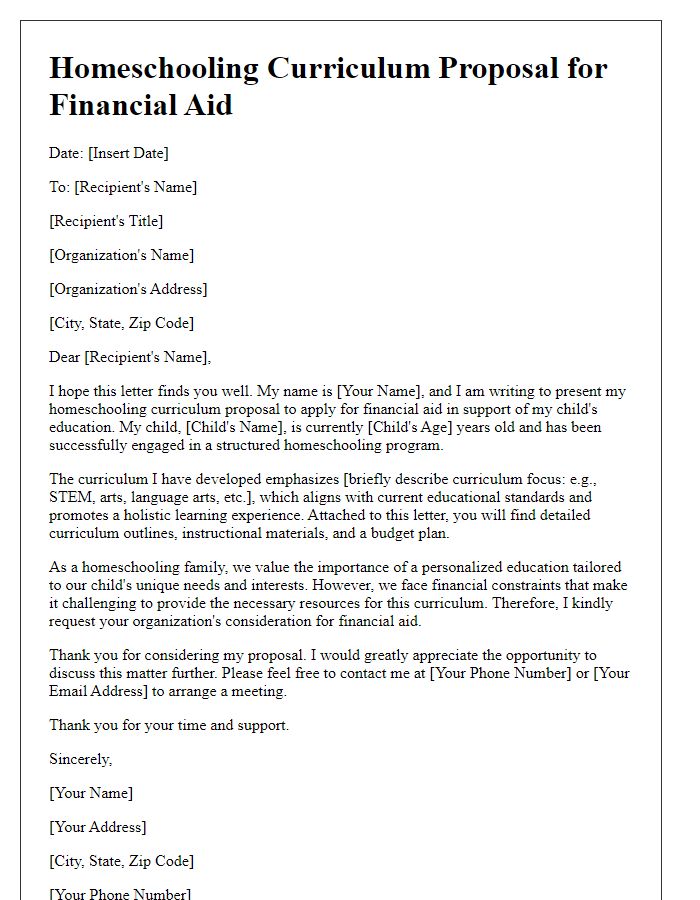
Letter template of homeschooling curriculum proposal for online learning resources
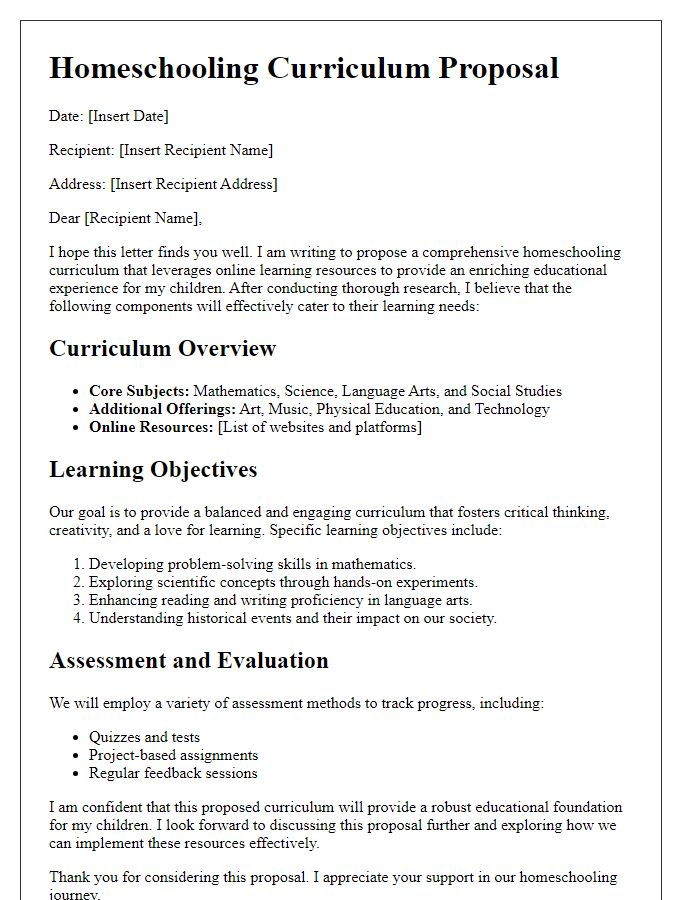
Letter template of homeschooling curriculum proposal for extracurricular activities
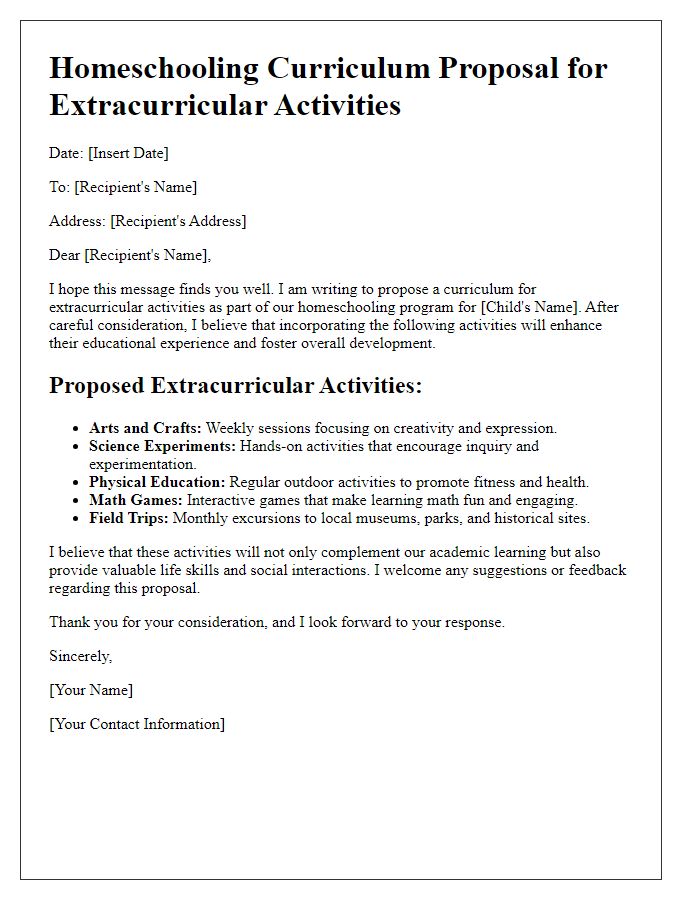
Letter template of homeschooling curriculum proposal for educational materials funding
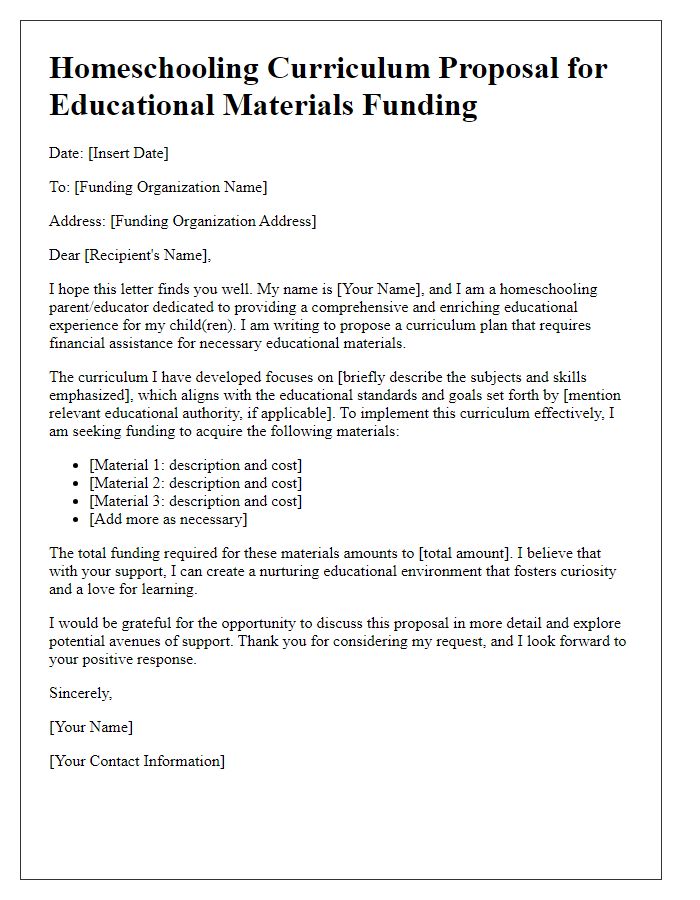
Letter template of homeschooling curriculum proposal for mentoring partnerships
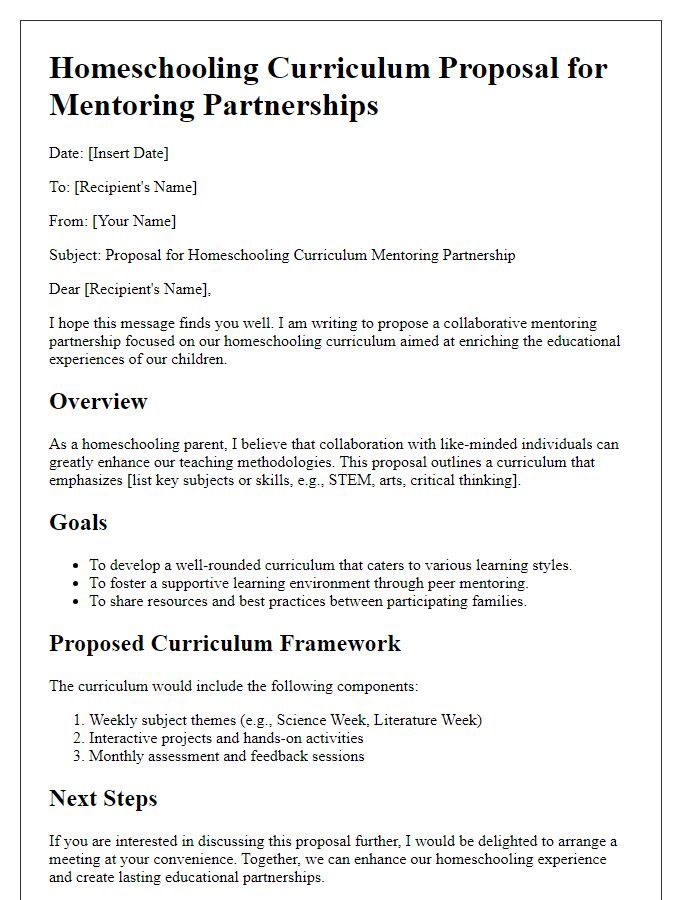


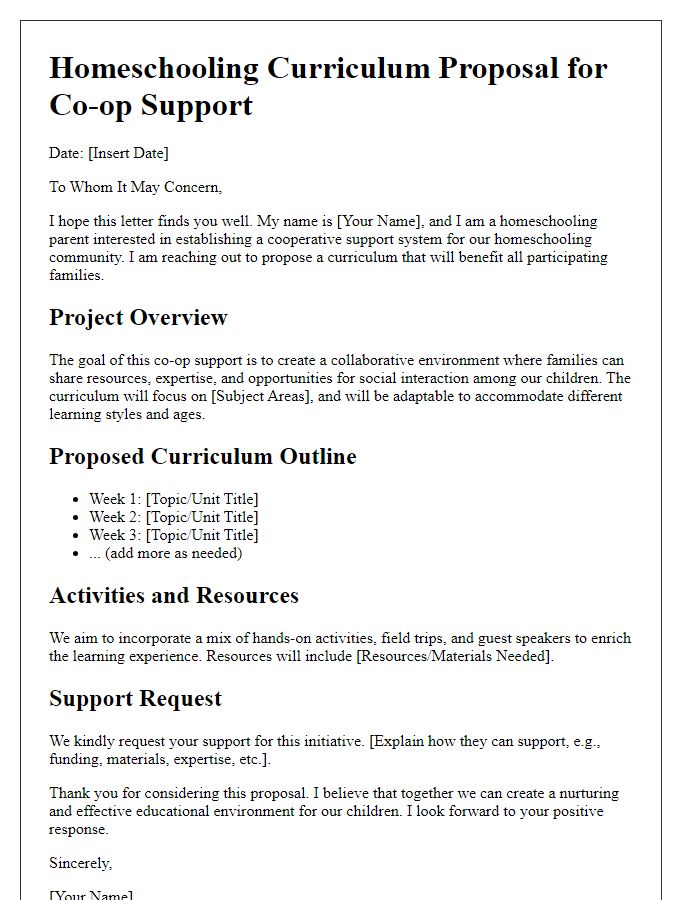

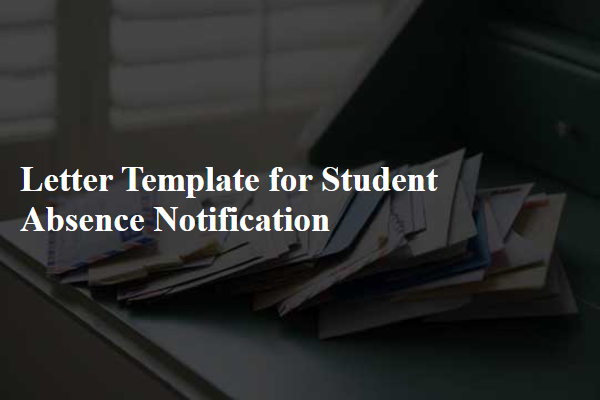
Comments